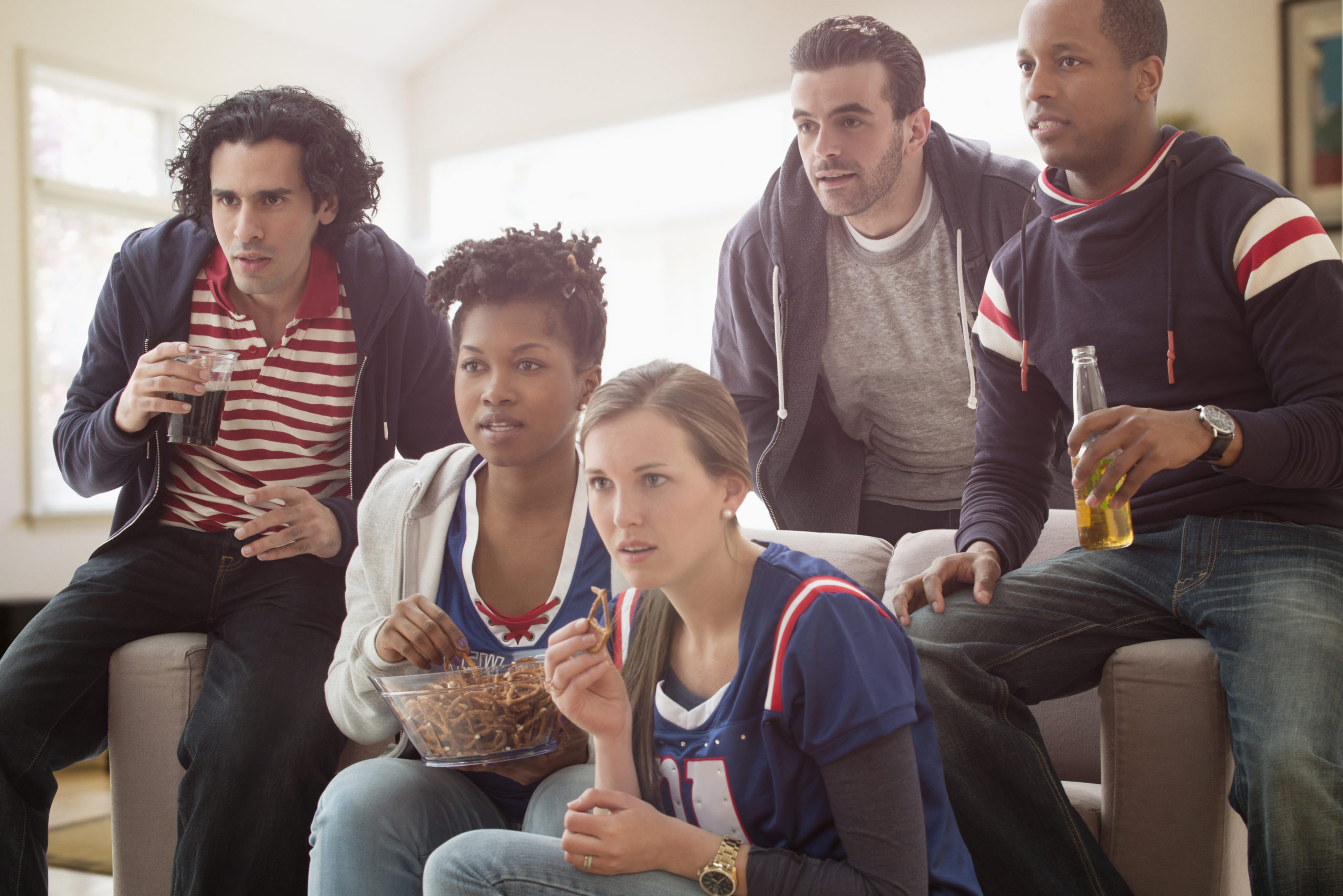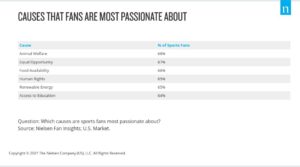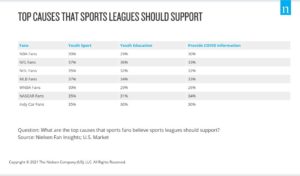
As consumers continue seeking more from brands than just products and services, the premise of brand promise has grown increasingly central to many core business strategies. And as brands look to showcase their individual promises, U.S. sports fans should be a key audience.
In addition to being extremely engaged with sports content, sports fans are passionate about social causes, with animal welfare and equal opportunity slotting in as the causes they care about the most.

The concept of corporate social responsibility certainly isn’t new, but consumers and employees have elevated their expectations of brands in recent years, as many now expect companies to view doing good as a necessity rather than a marketing strategy. And in an era where authenticity is everything, the marriage of brand and purpose could not be more critical for brands looking to elevate their relationships with consumers. Notably, the 2021 Edelman Trust Barometer cites that consumers now trust businesses in the private sector more than nongovernmental organizations (NGOs), governments and the media—and that trust increased 2 points in the most recent study.
In the sporting world, fans believe leagues should be leaders in supporting an array of causes, many of which focus on the nation’s youths. And not only do many fans look to leagues to champion youth sport (32%) and youth education (32%), 37% of U.S. sports fans in a recent Nielsen Fan Insights study believe that brands will be better able to catch the attention of sports fans when they partner with sports leagues. And 21% believe that brand-league partnerships are a great way to support social causes.

In addition to looking to brands to deliver on quality, price and convenience, U.S. consumers expect brands to remain committed to COVID safety, even as the country eases pandemic restrictions and consumers return to many of their pre-COVID routines, such as travel and returning to the office. And sports fans place a premium on health safety, with 31% saying they consider a brand’s stance on COVID important when they are purchasing the brand, which is 16% more likely than the general public.
Currently, most major leagues have existing partnerships with organizations that are focused on the country’s youths. Across social media, the NFL leads the conversation around youth sports and youth education, with 1,331 mentions over the past three months. Among those mentions, 10% pertained to Old Spice’s partnership with the Big Brothers Big Sisters of America and the NFL. NASCAR even used social media as the primary means to announce its new (April 2021) partnership with the Boys and Girls Club as the official youth community partner. But the brands didn’t do all the work. The conversations spiked during this year’s draft, primarily as a result of individual posts from NFL players Travis Kelce, Spice Adams and Devonta Smith. Other leagues taking to social media for youth causes include NBA and MLB, with 1,155 and 730 mentions, respectively.
Importantly, as the NFL examples across social media highlight, brands aren’t alone in consumers’ eyes when it comes to championing social causes. In some cases, consumers believe athletes should take the lead, as is the case with racial justice and equality. Comparatively, consumers believe sports teams (27%) should take the lead on the topic of gender equality, followed by brands and professional athletes (both at 26%).
Athletes have grown increasingly vocal about the causes they believe in, and this year’s Changing Value of Sponsorship report cites that they posted more about these causes in 2020 than they did in 2019. And what’s potentially more noteworthy, these posts generated 63% more engagement for brands than other owned social media content. Last year, 95% of athletes with more than 5 million followers on Instagram advocated for causes on social media, generating $314 million worth of media value*. Nielsen expects this to grow 4x to $1.2 billion by 2023.
The variety of causes and movements can pose challenges for brands and rights holders looking to partner where they believe they can have the biggest, most authentic impact. There are many considerations for all parties to think about as they weigh the options, but there’s much to learn from those who are already leaning in. And when we look at the causes that are most important to fans, there’s no surprise that racial justice, gender equality and the country’s youth are top considerations.
Note: *Nielsen Sports calculates an adjusted media equivalency that accounts for the ambient nature of sponsor-led exposure. The quality of each exposure is calculated by the QI Score and is applied to the 100% media equivalency.